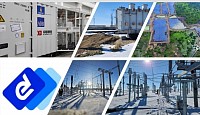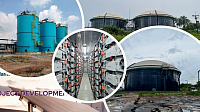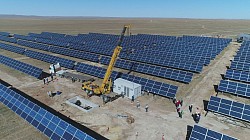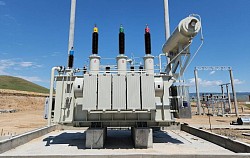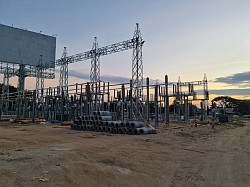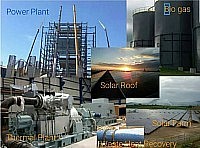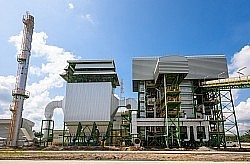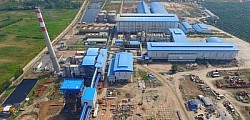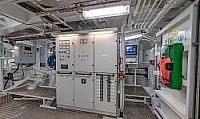PowerTech Engineering and Consultant Co., Ltd.
Power Electrical System
Power Group Holding to operate the business of power plants under the highest efficiency standards with an emphasis on the society and environmental
ELECTRICAL ENGINEERING WORKS
The company services for the design, procurement, construction, and installation of complete electrical engineering works.
High voltage transmission line system
To transmit electrical power from generating sources such as thermal power plants, combined cycle power plants to substations or between substations. System voltage would be 69 kV, 115 kV, 230 kV and almost all of the transmission line has been owned by Asia IPP (Independent Power Producer), SPP (Small Power Producer),
High voltage Substation
To transform for appropriate voltage level when electricity delivered from high voltage transmission line system is stepped down to medium voltage distribution line system before providing to customers.
Medium voltage distribution line and underground cable system
To distribute 22 or 33 kV or low voltage electrical power from the Substations by the aerial conductor of aerial cable stringing from pole to pole or by underground cable laying from the substation to users. Most of the underground cable would be extrusion work with cable in HDPE conduit at 22, 33, or 115 kV systems for IP, SPP, and industrial factories.
Renewable energies
Renewable energies are energy sources that naturally regenerate over time and do not run out. They are the most important part of the transition to an energy system that moves away from fossil fuels, thus countering global warming. And they are clean energies that safeguard human health and the environment.
Solar power generation businessInfinite energy from the sun
The Sun is the source of all life. Solar power generation technologies harness infinite energy from the Sun, as the electric power generation process does not emit greenhouse gases.
The main sources of renewable energy are:
- Solar energy
- Wind energy
- Hydropower
- Biogas Energy
- Biomass energy
All countries in the world share the same need to produce increasingly more renewable energy and to abandon conventional sources. According to data from the latest International Renewable Energy Agency (IRENA) report, in 2022 as much as 83 percent of all electricity capacity added lo was from renewable sources.
Biomass, Biogass Power Plant
In Thailand, well-recognized as one of the first rank exporters of agricultural and food products, biomass has been the traditional energy source, especially in rural areas for decades. Various types of biomass are available in mostly in the form of non-plantation resources. A recent study showed that agricultural residues are the most potential considering their quantitative availability.
In order to characterize the physical and chemical properties of Thai agricultural residues to be used as feedstock for energy conversion process, we developed an analytical protocole. Agricultural residues from major Thai economic crops, including paddy, maize, sugarcane and oil palm, were analyzed. In this paper, details of the analytical protocol are first described, then preliminary results are presented and discussed in comparison with data referenced in the literature.
Proximate, ultimate and elemental analyses showed that Thai biomass of interest possess similar physical and chemical properties as agricultural residues biomass documented in China. Rice husk, rice straw, maize stalk and sugarcane are of moisture content, and so they are appropriate to meet requirements of thermochemical process, while residues from oil palm would be more suited for biological process.
Comparatively to coal, agricultural residues biomass has a lower energy density and lower ash content. Contents in nirogen and sulfur are very low underlying potential environmental benefits of using agricultural residues as fuel for thermal power generation units. On the other hand, the content in ash-forming elements, especially in potassium is quite high, and hence it is necessary to well-quantify their concentration to prevent technical problems in operating thermochemical power plant using this type of biomass as feedstock. Preliminary results of this study could serve to establish a database of Thai biomass fuels or feedstock that would support decision making in terms of energy conversion technology selection and operating conditions setting.
To operate the business of the power plants under the highest efficiency standards with an emphasis on the society and environment, Electric Systems Provider,
Energy Management by Smart Metering
TPA Group is currently installing smart metering that monitors energy usage. This is a web-based system that the customer can monitor and diagnose the energy used and is a useful tool to help save energy and predict energy usage.
The building has multiple energy meters on various plant and equipment to monitor the energy used from one central location, this also is a useful tool for diagnosing potential maintenance issues that can be prevented.
